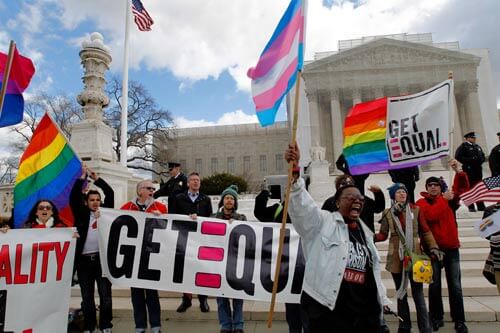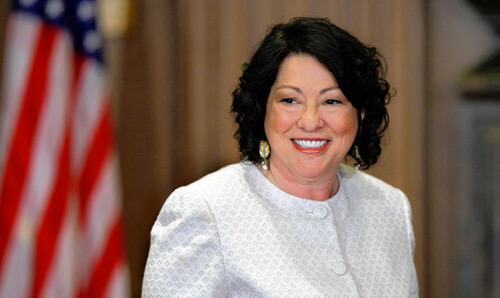Complaints from several civil rights organization and advocates are adding to the booming Republican resistance to President Barack Obama’s nomination to the Supreme Court. While the conservative party loyals maintain they are united in aggressively blocking any nominee named by the current president, reasons were varied for the mostly Democratic groups, some of which stated that they were neither consulted nor informed about the president’s choice.
Despite the White House oversight, members of the NAACP, the Leadership Council on Civil Rights, and the NAACP Legal Defense Fund claim they all are in support with the nomination of U.S. Appeals Court Judge Merrick Garland.
But not all Civil Rights groups are in agreement. The president was swiftly repudiated by more than a few for ignoring a more liberal candidate and even more vociferous were the voices of dissent railing against his lack of consideration for a nominee that reflected the racial, gender and progressive diversity of America.
“It’s unfortunate that President Obama felt it was necessary to appoint a nominee to the Supreme Court whose record on issues pertaining to women’s rights is more or less a blank slate. Equally unfortunate is that we have to continue to wait for the first African American woman to be named,” Terry O’Neill, president of the National Organization of Women said.
In a statement emphasizing the need for more gender diversity on the bench, O’Neill added that “the highest court in the nation was a cipher—a real nowhere man.”
Currently, with only three women serving on the court — Justices Ruth Bader Ginsburg, and Obama nominees Sonia Sotomayor and Elena Kagan — O’Neill’s poignant observation resonated with like-minded racially-conscious feminists.
A Black Women’s Roundtable group added to the conversation, saying: “We are disappointed and had hoped that an African American woman would be nominated.”
Melanie Campbell, president of the National Coalition on Black Civic Participation (NCBCP) led the BWR and immediately issued a statement denouncing the president’s choice.
The BWR, an organization that focuses on Black women’s participation in politics expressed disappointment.
“I think having a Black woman on the Supreme Court is a necessity.”
“We continue to believe it is time for African American women to be represented in all sectors of government — including the U. S. Supreme Court of the United States, which in its 227 year history has not had a Black woman nominated to serve on the highest court in the land.”
“We have and will continue to advocate for the next Supreme Court vacancy to be filled by an exceptional Black woman to bring about a balance that ensures the court is more representative of all Americans.”
Reportedly they sent a statement to the president prior to his announcement listing the names of qualified Black women they said would appropriately fill the seat left vacant after the sudden passing last month of Justice Antonin Scalia.
They suggested Leah Ward Sears, the first Black woman nominated to state Supreme Court, Kamala Harris, the first African American attorney general in California and Deborah Batts, the first openly gay African American federal judge and Anita Hill, a law professor.
They also listed U.S. Attorney General Loretta Lynch.
Touted a favorite to win favor with both parties, she allegedly asked to be removed from consideration.
Another high profile Black spokesman also chimed in disapproval with the president’s choice.
Ben Crump, president of the National Bar Association said: “We really wanted the unique perspective that a Black woman could have brought to the Supreme Court. We believe it is one of the few prospectives missing from the highest court in the land.”
The National Bar Association (NBA) is the largest legal organization of African American attorneys in the U.S.
“We simply do not have the African American point of view on the bench and we need that,” Rep. Hank Johnson (D-GA) said.
Pointing to the conservative positions often taken by the one Black on the bench, the southern legislator said the fact Justice Clarence Thomas is an African-American his viewpoint does not represent the diversity of his race.
As if that was not enough of a challenge to the nominee, Rep. Johnson added, “I am also disturbed about the packing of the court with Harvard-trained lawyers.”
Another Democrat concurred saying: “We don’t have anybody on the Supreme Court who has any understanding of our unique cultural issues.”
Rep. Emanuel Cleaver of Missouri said “Everybody else is represented. I’m not mad. We have women, Latinos, white men — when do we get somebody?”
With issues concerning, immigration rights, abortion rights, affirmative action, global warming and access to birth control soon to be decided by the Supreme Court, President Obama’s choice may face more than a few challenges from his own party before he leaves office at the end of his second term.

























